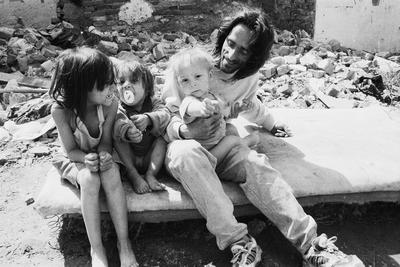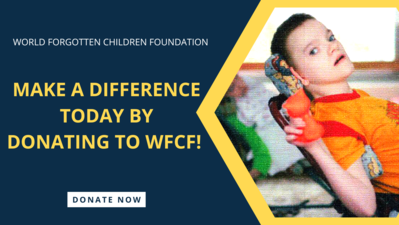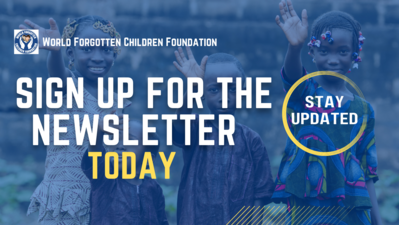
Maria Alexandrova, a 20-year-old Youth Disability Advocate based in Bulgaria, has made bringing more people with disabilities to the decision-making table her mission. Maria explains that with over one billion people (15 percent of the world’s population) living with a disability- her included- gaining some sort of representation at positions of power has been close to impossible (Alexandrova, 2021).
“Many in my community are invisible to those who make decisions about us,” Maria says. “Often excluded from official statistics, we are more likely to be overlooked in public policies needed to improve lives and livelihoods. Without data on how many people living with disabilities remain, for example, cut off from quality health and education services, government officials and other leaders cannot design reforms to address these disparities – disparities, by the way, that only compound the discrimination and rights violations our community already confronts” (2021).
In January 2022, UNICEF was able to slightly mitigate the problem of lack of visibility in a report called “Seen, Counted, Included: Using data to shed light on the well-being of children with disabilities,” where key findings were presented regarding people with disabilities. Here are some of the numbers pertaining to children with disability when compared to children without disabilities:
● They are 34 percent more likely to be stunted, and 25 percent more likely to be wasted
● 53 percent more likely to have symptoms of acute respiratory infection
● 25 percent less likely to attend early childhood education
● 49 percent to have never attended school
● 42 percent less likely to have foundational reading and numeracy skills
● 41 percent more likely to feel discriminated against
● 51 percent more likely to feel unhappy (UNICEF, 2022)
Maria explains that this is a “huge leap” towards ensuring development efforts are planned and executed in a way that will include people with disabilities and not leave them in the shadows. However, Maria also stresses that while we may look at the numbers and gauge how many people with disabilities are out there, we will not understand the why. The why, or reasons why people with disabilities tend to have worse health and social outcomes, can only be understood when listening to voices of people with disabilities. “Listen to our experiences, and heed our accounts of how to make real, lived change” (2021)

This needs to also be seen through a COVID-19 lens, as the pandemic has only exacerbated the inequities that exist between people with disabilities and those without. That should push us to speed up the process of ensuring that people with disabilities have a voice when it comes to decision-making. “We are the best writers of our own stories,” says Maria. “Only by promoting the active engagement of people with disabilities in all democratic processes, can we move towards a more inclusive world” (2021).
Inclusive policies are important to create an environment of belonging, not just to meet basic needs, as people with disabilities face severe isolation due to being in a highly inaccessible environment which does not give them a chance to interact with other people socially and may lead their mental health to deteriorate. Good leadership, according to Maria, creates environments that are more accessible. In her role as a UNICEF Youth Advocate for Inclusive Education in Bulgaria, she showed that good leadership is “two-directional” and can be showcased by not only activists but people in power too. Of course, disability advocates have some responsibility in representing diverse groups, but it is not an easy task. People with disabilities can only draw from personal experiences, and some do have a platform to speak out about injustices, but this is highly limited. The governments hold the bulk of responsibility for being “drivers of change.” This can be done through legislative reform that takes on the issue of people with disabilities head- on by ensuring their safety, societal participation, and well-being (2021).
Maria’s final message: “No matter how painful my struggle, I always approach it with a big and bright smile- if not to help myself, then to help others!” (2021)

Here in World Forgotten Children Foundation, one of our core missions is providing help for orphaned children with disabilities. Our past projects have helped children with disabilities all over the world, and we hope to continue our work. You, too, can help us achieve our mission by donating today!
References:
Alexandrova, M. (2021, December 1). The right to be seen and heard. UNICEF. https://www.unicef.org/blog/right-to-be-seen-and-heard
UNICEF. (2022, May 10). Seen, counted, included: Using data to shed light on the well-being of children with disabilities. UNICEF DATA. https://data.unicef.org/resources/children-with-disabilities-report-2021/


